MercoPress. South Atlantic News Agency
Tag: Mauricio Macri
-
Wednesday, October 25th 2017 - 10:02 UTC
Macri reminds cabinet “more votes, means more responsibilities”
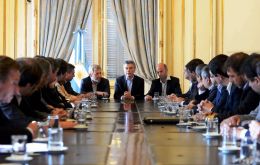
“I'm not that happy, more votes means more responsibilities”, Argentine president Mauricio Macri told his ministers when they applauded him on entering the first cabinet meeting following on Sunday's victory of the ruling coalition, Let's Change in the midterm elections.
-
Tuesday, October 24th 2017 - 06:34 UTC
Macri anticipates sweeping tax, education and labor reforms

President Mauricio Macri said on Monday he will seek more sweeping reforms for Argentina after his governing coalition scored a resounding victory in congressional elections. Macri's center-right coalition remains a minority in both houses of Congress.
-
Monday, October 23rd 2017 - 06:25 UTC
Sweeping victory for Macri consolidating his reform plans and 2019 reelection bid

Candidates allied with Argentine President Mauricio Macri enjoyed sweeping victories in Sunday’s mid-term election, strengthening his position in Congress while dimming prospects for a political comeback by his predecessor Cristina Fernandez. free-spending populist who nearly bankrupted the country during her 2007-2015 rule.
-
Wednesday, October 18th 2017 - 12:03 UTC
Political spring ahead for Macri, if opinion polls results are confirmed on Sunday
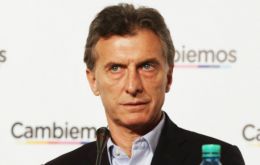
Argentine president Mauricio Macri seems to be in the threshold of a new political spring following on the expected results of next Sunday's midterm election when a third of the Senate seats and half the Lower House, plus several governorships will be on dispute.
-
Tuesday, October 17th 2017 - 11:26 UTC
Argentina's Macri Let's Change coalition “clearly predominant” ahead of Sunday's midterm elections
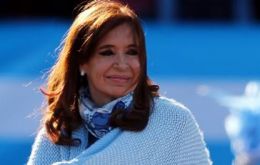
There is a “clear predominance” of president Mauricio Macri's “Let's Change” coalition in Argentina and in the crucial Buenos Aires province, ahead of next Sunday's (October 22) midterm elections, according to political analyst Sergio Berensztein.
-
Friday, October 13th 2017 - 13:54 UTC
Argentina's September CPI 1.9% and 17.6% in nine months
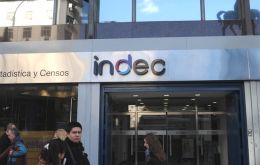
Consumer prices rose 1.9% in Argentina in September, government statistics agency Indec said on Thursday, pushing the nine-month inflation reading to 17.6%, above the upper band of the central bank’s target for the year.
-
Tuesday, October 10th 2017 - 07:20 UTC
Macri celebrates victory of staunch ally in Corrientes province

Argentina's ruling coalition of president Mauricio Macri celebrated on Sunday victory in the Corrientes province governor race, a significant boost a couple of weeks before the crucial midterm elections. Candidate Gustavo Valdés supported by “Let's Change” grouping won the Corrientes gubernational dispute with 54.06% of the votes.
-
Tuesday, October 3rd 2017 - 07:05 UTC
“Hard to visualize a scenario” with Macri not running for reelection in 2019

Argentine President Mauricio Macri is almost certain to run for re-election in 2019, his top campaign adviser said, even as he acknowledged that the leader's market-friendly reforms were unpopular among many poor Argentines.
-
Thursday, September 28th 2017 - 07:07 UTC
Macri's Senate candidate leads poll in Buenos Aires province

With less than a month to Argentina's midterm elections, the government's Senate candidate in the province of Buenos Aires, Esteban Bullrich has a 39.6% vote intention, three percentage points ahead of ex president Cristina Fernandez de Kirchner, according to the latest M&R and Query public opinion poll.
-
Tuesday, September 26th 2017 - 13:04 UTC
Argentina's GDP expands 2,7% in second quarter over a year ago
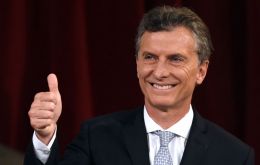
Argentina’s gross domestic product grew 2.7% in the second quarter versus the same period last year and expanded by 0.7% versus the first three months of 2017, the government’s Indec statistics agency said.
